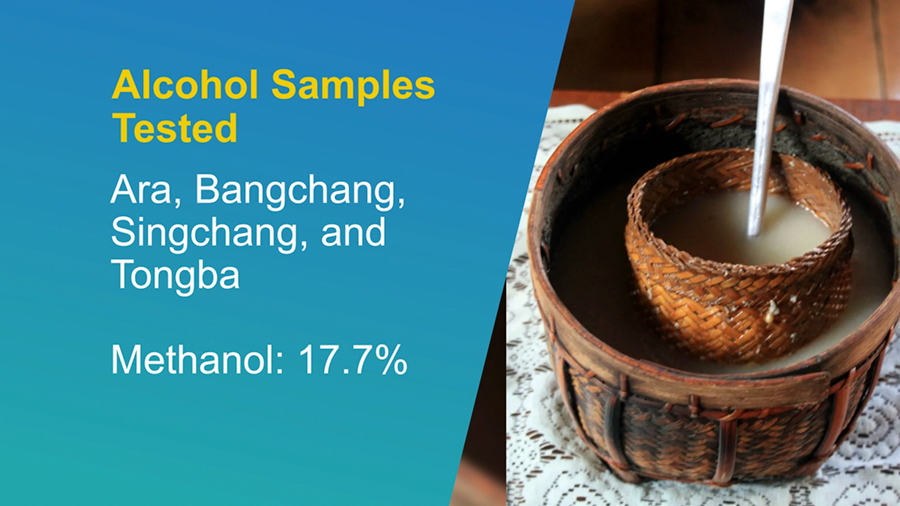
Here is some troubling news for those who love drinking Ara, Bangchang, and Singchang, among others. A recent National Health Survey has found concerning levels of methanol, a highly toxic substance. Methanol, if consumed, can cause serious health risks, including potential blindness and even death. With almost 20 per cent of all samples showing the presence of methanol, health officials are calling for an urgent need for stringent regulations to ensure the safety of these beverages.
According to the National Health Survey, over 30 per cent of households nationwide brew alcohol at home.
The highest prevalence of household brewing is in Trashigang (73.3%), Lhuentse (62.5%), and Zhemgang (62.3%). In contrast, Chhukha (11.7%) and Thimphu (12.1%) reported the lowest percentages of households brewing alcohol.
The survey analysed nearly 800 home-brewed alcohol samples from across the country, including Ara, Bangchang, Singchang, and Tongba, to check for ethanol and methanol levels.
In the European Union, alcoholic drinks can have up to two per cent methanol.
The survey found that none of the beverages that were tested had more than two per cent methanol. However, health officials are concerned as methanol was detected in almost 20 per cent of the samples, highlighting a serious public health concern.
“In commercial alcohols, at least they are regulated. So, we know what the contents are in the alcohol we are consuming. We can be assured that the chemicals we are consuming are within the safe limit. However, we cannot say the same about locally brewed alcohol and the evidence is coming up from surveys,” said Mongal Singh Gurung, a medical statistician at the Ministry of Health.
Health officials said that the high methanol levels in home-brewed alcohol may be due to improper production methods. Methanol is produced during the brewing process.
However, commercial manufacturers reduce it to levels, which are safe for human consumption.
“During the distillation, if there is fluctuation or if the temperature is wrong, then methanol also comes into your drink. And that could be fatal. Just a small 10 ml of methanol, if you drink it, then your optic nerve might get damaged and cause blindness instantly. And any higher amount of methanol can cause death,” said Adeep Monger, deputy chief laboratory officer at the Royal Centre for Disease Control.
The health risks of home-brewed alcohol are a serious global concern.
Poor production practices can lead to dangerously high levels of methanol and other harmful substances, posing significant health hazards like alcohol poisoning, long-term organ damage, and even death.
A few years ago in Dagana, four people died from alcohol poisoning after consuming home-brewed alcohol.
Health officials said that the situation could worsen if not addressed and highlighted the urgent need to regulate home-brewed alcohol to prevent potential health crises.
“For self-consumption, it will be difficult to regulate. However, the commercialisation of home-brewed alcohol is something we have to bring some regulation into place. Because with commercialisation comes adulteration and also the use of cheap spoilt grains,” added Mongal Singh Gurung.
A health official said that they will soon start testing home-brewed alcohol for other toxic chemicals and evaluate their health impact.
Meanwhile, according to the Annual Health Bulletin, alcohol liver disease remains the leading cause of death in the country. In addition, mental and behavioural disorders due to alcohol have been increasing over the last five years.
Karma Samten Wangda
Edited by Sonam Pem









